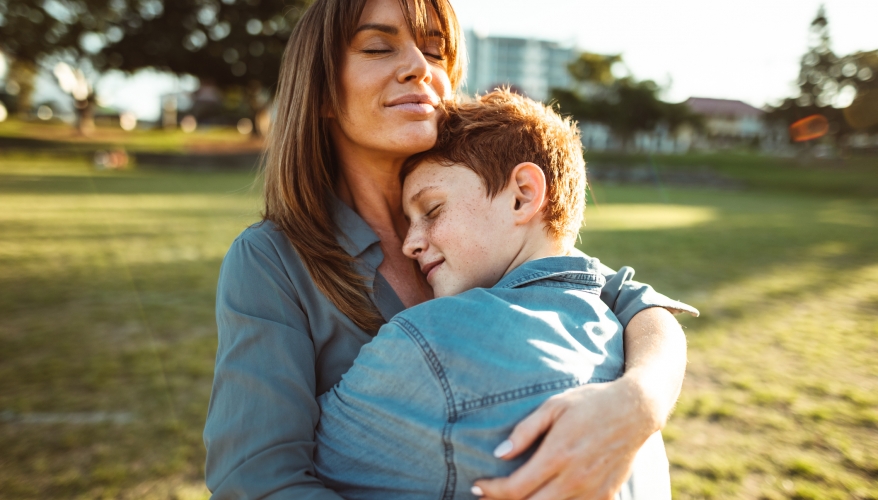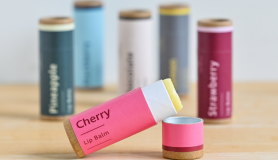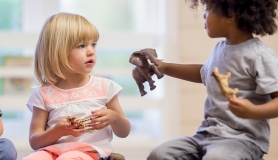‘Mummy, I need a hug,’ says Sam. His little mouth pouts as I fold my arms around him. At six years old he is well versed in the universal language of love. Moments later, he rushes off, eager to resume play with his brother. He just needed to recharge, I think to myself, quietly hoping that this continues for many years.
However, I know that there will come a time when these young affectionate boys, barely out of toddlerhood, will turn into big burly teenagers who will cringe at the thought of a hug from mum. They will be too busy with girls, studying and protecting their reputation to enter such touchy feely pursuits, so I relish every huggy moment they give me now, trying to imprint it on my memory to carry me through.
Hugging is the universal language of affection. It is the first language mothers use to bond with their babies and it is fundamental to our wellbeing. We hug when we’re happy, when we’re sad, when were excited. We hug our children, our partners, our friends and our family, even our pets. A hug is what happens when words cannot convey a feeling, it is as ubiquitous as breathing and is perhaps the greatest act of recognition and appreciation we can show others.
A hug is a sincere communication of the heart, of letting ourselves be seen, of connecting with others. There are those that hug reluctantly, keeping their distance, and others who hug anyone and everyone with abandon.
Not all cultures express themselves in the same way, preferring to hug only the nearest and dearest whereas others thrive on it. The French for example, are three times more affectionate in public than Americans, according to studies.
Cultures may differ in their frequency of hugs but the world over it is agreed that babies need to be held. This was demonstrated most overwhelmingly when babies in Romanian orphanages died due to lack physical touch. A profound and distressing reminder of the value of hugs, if ever there was one.
FEELING SECURE
Hugging gives us a feeling of security. It is vital to our development. The Harlow studies, which showed that monkey babies prefer a cloth huggable doll without milk as a mother substitute over a metal doll with milk, reveals just how important hugging is to our wellbeing. And studies have shown that children who were not hugged enough will grow up into adults who, not only feel uncomfortable with touching and hugging others but will also show more symptoms of stress.
When we hug, oxytocin is released. This hormone appears to cause changes in the firing of the amygdala, the part of the brain that helps to process our emotions. So, if you have an emotionally fraught teenager, hug him and he will feel so much better for it.
There is even evidence that hugging enhances our immune system and wards off infection. Research published in Psychological Science has discovered that hugs act as a form of social support, that when we hug others, particularly those who are stressed, we are protecting them from the increased susceptibility to infection associated with stress.
‘We know that people who report having social support, especially in the form of hugs, are partly protected from the effects of stress on psychological states, such as depression and anxiety,’ said Cohen, the lead author of the study. ‘The apparent protective effect of hugs may be attributable to the physical contact itself or to hugging being a behavioral indicator of support and intimacy.’ Cohen added, ‘Either way, those who receive more hugs are somewhat more protected from infection.’
MEDITATION
Zen Buddhist monk, teacher, and peace activist Thich Nhat Hanh explores the benefits of hugging in his book ‘How to Love’. He devised a practice he called ‘hugging meditation,’ According to the practice, when you really hug the person you are holding, make him or her feel very real in your arms, breathing consciously and hugging with all your body, spirit, and heart we are practicing mindfulness… ‘Breathing in, I know my dear one is in my arms, alive. Breathing out, she is so precious to me.’ His theory is that through deep breaths and holding the person, the energy of our care and appreciation will penetrate into that person who will be nourished by the hug. He says, ‘When we hug, our hearts connect and we know that we are not separate beings. Hugging with mindfulness and concentration can bring reconciliation, healing, understanding, and much happiness.’
Research published in the journal Psychological Science revealed that hugs and touch significantly reduce our fears of death. ‘Interpersonal touch is such a powerful mechanism that even objects that simulate touch by another person may help to instill in people a sense of existential significance.’ said lead researcher, Sander Koole.
As if all this wasn’t enough hugs are known to stimulate oxytocin, a neurotransmitter that helps to promote feelings of contentment, reduce anxiety and stress, which in turn is linked to lower blood pressure and heart rate.
Hugs stimulate our brains to release dopamine which is responsible for giving us that feel-good feeling. If we have low dopamine levels we may experience mood disorders such as depression and even Parkinson’s disease.
Hugs will stimulate serotonin which allow us to feel self-worth. A lack of serotonin may result in feelings of loneliness and depression, a sense of not belonging, which is one reason why young people might become involved with groups who indulge in nefarious activity.
Being hugged is so powerful to our health and wellbeing that we use teddy bears and other soft toys to simulate being held in a soft, comforting embrace. This is a good reason, if ever there was one, to fold your arms around your nearest child this very moment.
Louise is a mother to two boys and a part-time writer based in Glos. She writes regularly on parenting issues for The Green Parent magazine.
MORE INSPIRATION
JOIN Take part in Random Huggers Day in May - randomhuggers.com
READ About the Love Foundation – a non-profit foundation set up to spread unconditional love - thelovefoundation.com
EXPLORE Theta healing techniques (a technique based in love and connecting to source energy) at worldoftheta.com







